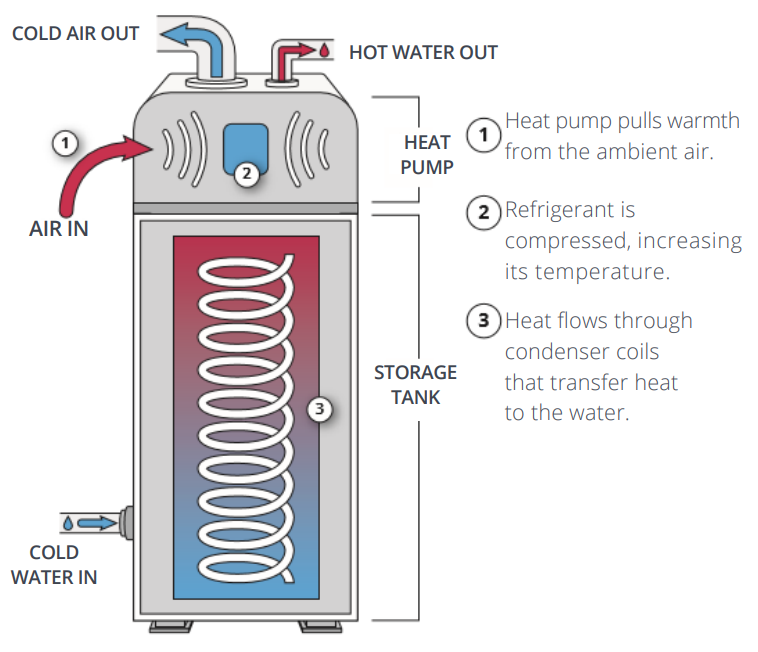Need help navigating retrofits?
Register for free today!
Heat Pump Water Heater
An electric heat pump water heater is the most energy-efficient way to heat water and the most climate friendly form of water heating available.
What are the benefits?
Saves energy and money
Uses significantly less energy than a standard electric water heater resulting in lower energy consumption and bills.
Climate-friendly
Heat pump water heating systems provide a clean-energy alternative to natural gas that can reduce your home water heating carbon footprint by over 95%.
Maximum efficiency
The most energy-efficient hot water heating system currently available.
Reliability
Provides the same reliable hot water you are accustomed to.
Smart controls
Adjust the operating mode to find the setting that best meets your hot water needs.
How does it work?
A heat pump water heater takes heat from one place and moves it to another by compressing and expanding refrigerant. To heat water, the heat pump extracts warmth from the ambient air by compressing the refrigerant to increase its temperature. A condenser coil inside the hot water system transfers heat from the refrigerant to the water. During times of high hot water use, there is a backup electric heat element to provide hot water on demand.

What are the costs?
The cost for purchasing and installing a heat pump water heater is variable and depends on several factors including the make, model, and efficiency. Be sure to get multiple quotes to compare costs, installation approaches and warranties.
The right system for your home
Getting optimal performance from a heat pump water heater depends on more than just choosing the right equipment.
Consult with experts
Ask your contractor, builder, or energy advisor how this feature could transform your home. Ask questions about the best size for your home and the best installation location.
Ensure optimal performance
The quality of the installation can affect system performance and home comfort. Ask your contractor or builder questions to ensure your system is properly sized and installed.
Maintain your equipment
Similar to servicing a vehicle, preventive maintenance is a good investment to minimize future problems. Arrange for professional annual servicing. Examine the heat pump’s filter, lines and drain pan regularly. Consult the owner’s manual for more details on servicing and maintenance
Consider additional retrofits
All of the systems in a house work more effectively when the home is more energy-efficient. Consider accessing rebates for upgrading your heating system, insulation, windows and improving the air-tightness of your home. Then enjoy the comfort and affordability that comes with living in an energy-efficient home.

